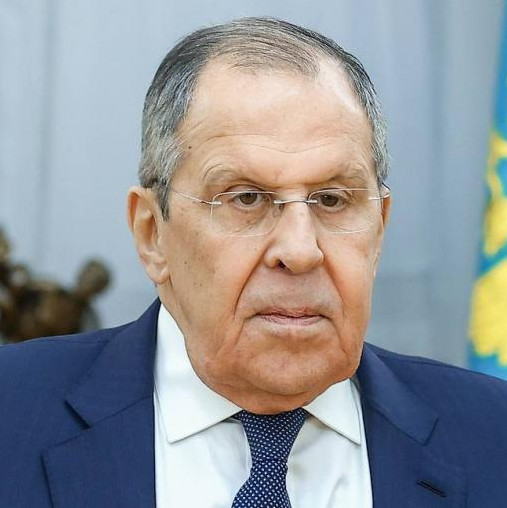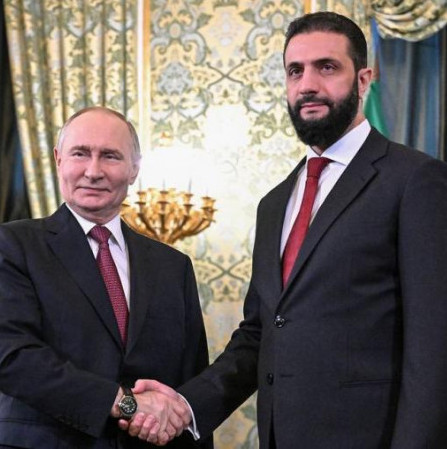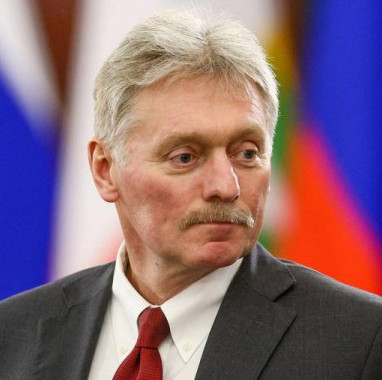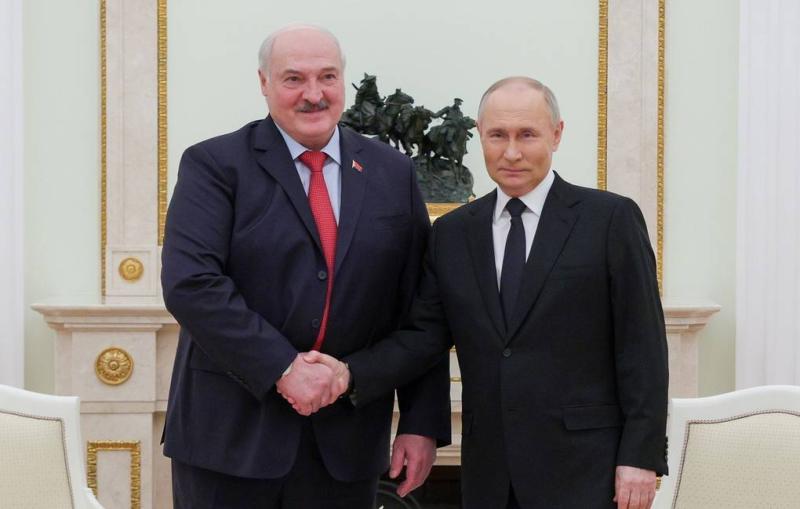Russia advances to ratify its agreement on security guarantees with Belarus; US President Trump’s plan to take over Gaza faces Arab criticism. Meanwhile, Washington is working to dismantle USAID. These stories topped Thursday's newspaper headlines in Russia, TASS news agency.
Vedomosti: Russia approves treaty on security guarantees with Belarus
On Wednesday, Russian President Vladimir Putin introduced a pact on security guarantees with Belarus for ratification in the State Duma. The treaty was signed two months ago. In line with a decree on the matter, published on the official portal of legal information, the document will be presented to lawmakers by Russian Deputy Foreign Minister Alexander Grushko.
The agreement includes a clause recognizing a military attack on one of the two Union State members as an act of aggression against the entire union. In that case, both nations will respond, using all forces and means at their disposal in accordance with Article 51 of the UN Charter.
Additionally, the pact contains clauses regarding Russian nuclear weapons. According to those, they are considered a key element in preventing nuclear and non-nuclear military conflicts, as well as a means of deterrence that can be used as a last resort. In addition, it may be invoked in the event of a nuclear attack on one of the parties to the Union State treaty, as well as in the event of aggression against either party using conventional weapons that pose a critical threat to its sovereignty or territorial integrity.
The pact establishes a new geopolitical reality of allied relations between Russia and Belarus, Vyacheslav Sutyrin, director of the Center for Science Diplomacy and Promising Academic Initiatives at Moscow State Institute of International Relations’ Institute for International Studies, told Vedomosti. It provides for mutual obligations not only in the sphere of military threats, but also in case of violations of the constitutional order of the Union State members. Thus, Russia and Belarus are preparing to repel both military and political hybrid threats. In addition, the clause on the use of nuclear weapons in response to military aggression with conventional weapons, should that pose a critical threat to sovereignty, is also highly significant. Thus, the ratification of the pact reflects the long journey that Russian-Belarusian relations have undergone since 2020 and makes the countries more prepared for new threats in Eastern Europe, the expert concluded.
The agreement should be viewed as a signal to NATO countries, while its clauses on the deployment of Russian nukes on Belarusian territory should serve as a reminder that the overwhelming superiority of Western countries in conventional weapons is irrelevant, according to political scientist and editor-in-chief of RuBaltic.Ru and Eurasia.Expert, Alexander Nosovich. The nuclear factor minimizes NATO’s superiority in conventional weapons, while the pact on security guarantees sends a message that Russia will use nukes in the event of aggression against Belarus to protect it, he explained.
Vedomosti: Arab nations, Turkey, and even France oppose Trump’s proposal to seize Gaza
The United States may assume long-term control of the Gaza Strip and reconstruct it after relocating Palestinians elsewhere, US President Donald Trump said at a meeting with Israeli Prime Minister Benjamin Netanyahu in Washington on February 5. The Republican is considered one of the most pro-Israeli American presidents: during his first term in 2017, he recognized Jerusalem as the capital of the Jewish state.
His Gaza proposal has been rejected by not only Egypt and Jordan, but also Saudi Arabia, which reiterated that it would recognize Israel only if a separate state for Palestinians is established. Turkey’s Foreign Minister Hakan Fidan dismissed Trump’s plan as unacceptable.
The French Foreign Ministry opposes "any forced displacement of the Palestinian population in Gaza." China’s Foreign Ministry spokesperson Lin Jian said Beijing concurred as he expressed hope for resolving the issue based on a two-state solution. Kremlin Spokesman Dmitry Peskov confirmed Moscow’s commitment to the same principle, while Palestinian leader Mahmoud Abbas warned that Palestinians won’t relinquish their land. A senior Hamas official, Sami Abu Zuhri, said the radical group which governs Gaza will not allow the US proposal to proceed.
Trump’s statement highlighted his strategy in the Middle East of maintaining the role of a regional arbiter and making Israel responsible for safeguarding this influential role, Lev Sokolshchik, senior researcher with the Center for Comprehensive European and International Studies at the Higher School of Economics, said. It also sends a message to Iran that the US is seeking to exert more pressure on the Islamic Republic, the expert added.
While Arab nations may be voicing their opposition to taking in Palestinians, things could change if they are offered more than military contracts, Ivan Bocharov, program manager at the Russian International Affairs Council, told Vedomosti. He believes that Trump’s rhetoric reduces the likelihood of progressing to the next stage of the Israel-Hamas ceasefire deal.
Technically, Trump can take over Gaza and revamp the enclave using public-private partnership mechanisms for large infrastructure projects, Sokolshchik continued. However, in reality, the decision-making in the US has its peculiarities, even with the Republican majority in both chambers of Congress, he concluded.
Izvestia: US moves to dismantle USAID
Between the fiscal years of 2016 and 2024, the US allocated nearly $335 billion from its federal budget, or about 5% of last year’s total expenditure, on USAID initiatives, Izvestia has calculated.
The United States Agency for International Development operated in Russia for twenty years - from 1992 to 2012 - as it collaborated with both government agencies and non-governmental
organizations. According to open data, USAID spent $2.7 billion to fund 57 Russian entities during that time, of which around 60% was directed toward democracy and human rights initiatives.
"Russia criticized that USAID was enforcing its standards and policies, while the US responded that its Russian partners did not fully implement USAID’s recommendations," Andrey Kortunov, an expert at the Valdai Discussion Club, stated in an interview with Izvestia.
After the US agency concluded its operations in Russia, it expanded its efforts in other former Soviet republics. Ukraine, for instance, was not even among the top 20 recipients of US foreign aid before 2022, and Kiev has secured $35 billion from USAID in the past three years alone. The agency assisted Kiev in accessing frozen Russian assets and tracking US-provided weaponry. Furthermore, at least 80% of Ukrainian media organizations were funded by grants from the agency.
Georgia also drew the persistent focus of USAID, which invested $6.3 million in supporting elections there in 2024.
The Trump administration is currently pursuing reforms of the agency. Nearly all of its 10,000 staff members will be placed on administrative leave starting February 7, while USAID’s 60 international offices are already shutting down. Employees of the Department of Government Efficiency, led by Elon Musk, have been granted access to the agency’s confidential documents. As a result, the White House is stripping USAID of its independence, which had effectively functioned as an alternative foreign ministry with a significant budget, Mikhail Mironyuk, an associate professor in the Department of Politics and Management at the Higher School of Economics, told Izvestia. "I’d bet USAID will be relaunched after the restructuring or at least be partially merged into the US Department of State," the expert suggested.
Nezavisimaya Gazeta: Another British diplomat visits Kiev
UK Foreign Minister David Lammy has landed in Kiev to address Ukraine’s defense concerns. The same topic was a key focus when British Prime Minister Kier Starmer visited the Ukrainian capital less than four weeks ago. Ukrainian Ambassador to the UK Valery Zaluzhny, Ukraine’s former commander-in-chief of the armed forces, shared a photo with the British official on his Telegram channel.
It’s worth noting that Zaluzhny was the first person to announce the agenda of Starmer’s initial visit to Kiev on January 16 as well.
The frequent activity of all participants has sparked questions about why British officials have been visiting Kiev so often, and whether Britain may be pursuing its own agenda amid Donald Trump’s return to power in Washington. Furthermore, could London be aiming to position Zaluzhny as a possible contender to Ukraine’s Vladimir Zelensky, whose term ended on May 20, 2024?
This speculation arises as Trump’s special envoy Kieth Kellogg recently suggested that Ukraine might hold parliamentary and presidential elections later in 2025.
Commenting on the frequent visits of British officials to the Ukrainian capital, Sergey Shein, a senior analyst at the Center for Comprehensive European and International Studies at the Higher School of Economics, told Nezavisimaya Gazeta that Britain is pursuing its own strategy that differs from Washington’s approach. "All the security discussions indicate that Ukraine might join the North Atlantic Treaty Organization," he pointed out. While London may not be actively trying to replace Zelensky, it could be keeping Zaluzhny in its backup pool to quickly prepare him for a future election campaign if needed, the expert explained.
How the regional dynamics will evolve next depends on who will lead the upcoming negotiation process and which proposals will initiate peace talks, sociologist Yevgeny Kopatko told Nezavisimaya Gazeta. So far, he said, there has been a strong emotional reaction to the prospect of negotiations and elections, with numerous reports online suggesting that Zaluzhny is substantially ahead of Zelensky in approval ratings. However, he emphasized, there are no concrete indications of holding either talks or an election in the immediate future.
US President Donald Trump has announced plans to eliminate Iranian crude exports. Washington’s opposition to Tehran’s nuclear program is a stated reason for that. The move will primarily affect China as a key buyer of Iranian oil, experts warn.
Iran’s top diplomat Abbas Araghchi dismissed Trump’s maximum pressure campaign as a "doomed strategy." In light of the latest US threats, Iranian Petroleum Minister Mohsen Paknejad announced a plan to sign "one of the biggest oil contracts in the country’s history" in the presence of Iranian President Masoud Pezeshkian soon.
"In 2024, Iran shipped 1.29 million barrels of oil daily, with China being the primary buyer. This means the US will exert pressure on Iran’s oil sector through China, similar to Trump’s first term, when US sanctions targeted Chinese state-owned oil firms for buying Iranian oil," Gasan Ramazanov, an expert at the Gaidar Institute, told Nezavisimaya Gazeta. The expert believes that more sanctions pressure on Iran’s oil industry will push oil prices higher, with Chinese companies missing out on some oil supplies and Russia potentially increasing exports to the Asian market.
As Trump’s plan goes, all his actions should bring oil prices lower, experts say. "Boosting oil output in the United States and applying pressure on Iran - he has made his latest remarks to drive oil prices down. A drop in oil prices was seen as a main tool of pressure on Russia," Oleg Abelev, chief analyst at Ricom Trust, said.
Meanwhile, the attempt to halt Iranian oil exports may prompt a rise in oil prices to above $90 per barrel, while reducing the sanctions pressure on Russian crude and oil tankers from importers, Dmitry Alexandrov, chief analyst at AVI Capital, noted.
TASS is not responsible for the material quoted in these press reviews



